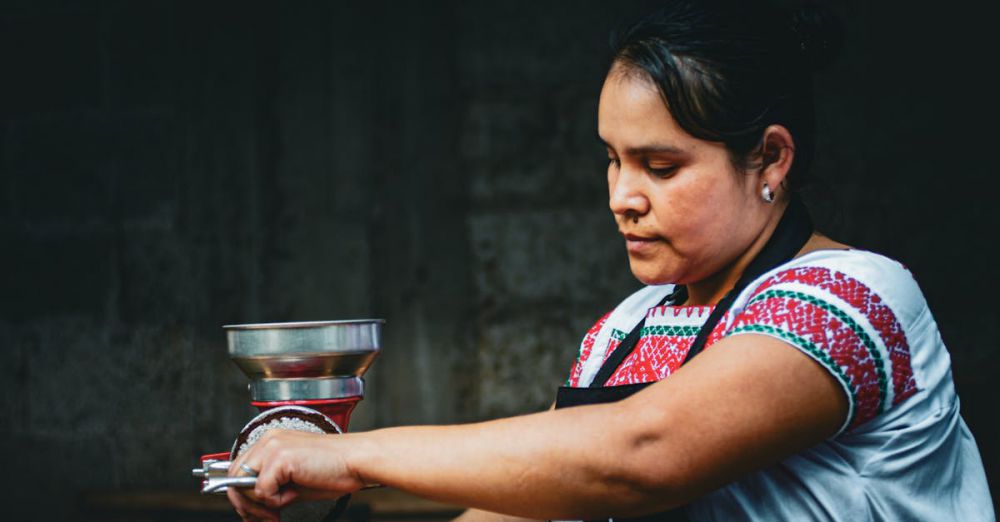How Can You Experience Traditional Indigenous Cuisine
Indigenous cuisine embodies the rich cultural heritage of native peoples worldwide. Each dish tells a story, reflecting the land’s bounty, historical practices, and community values. To delve into this vibrant world of flavors, textures, and traditions, one must embark on a culinary journey that goes beyond mere tasting. Here’s how you can immerse yourself in traditional Indigenous cuisine, appreciating not just the food but the culture that surrounds it.
Exploring Local Markets
Visiting local markets is an excellent gateway to experience traditional Indigenous food. These marketplaces often feature fresh, native ingredients that are staples in Indigenous cooking. Look for produce like wild berries, various squashes, or roots such as camas and wild potatoes. Additionally, many markets showcase handcrafted items from Indigenous artisans, providing a deeper understanding of the cultural context of the cuisine. Engaging with vendors can also offer unique insights into their culinary traditions and cooking methods, enriching your experience.
Participating in Cooking Classes
Many Indigenous communities offer cooking classes that highlight traditional recipes and techniques. These classes provide hands-on experience, allowing you to learn from those who have inherited these culinary practices. Expect to explore the preparation of dishes such as frybread, smoked salmon, or corn-based recipes. Not only will you acquire new skills, but you will also gain an appreciation for the cultural significance of each meal. Ask questions, share stories, and enjoy the communal aspect of cooking, which is often a central part of Indigenous food culture.
Dining at Indigenous Restaurants
Seek out restaurants that specialize in Indigenous cuisine. Many chefs are dedicated to reviving and modernizing traditional recipes, showcasing local ingredients while respecting cultural heritage. When dining at these establishments, take the time to read the menu carefully, as many dishes will include elements that highlight Indigenous foodways. Don’t hesitate to ask the staff about the origins of the ingredients or the stories behind certain dishes. This engagement will enhance your dining experience and deepen your understanding of the cuisine.
Attending Cultural Festivals
Cultural festivals often feature Indigenous food as a central attraction, offering a variety of traditional dishes for tasting. These events celebrate the community’s heritage and may include storytelling, music, and dance, creating a vibrant atmosphere. Attending such festivals allows you to sample a range of foods, from traditional stews to baked goods, while experiencing the cultural context in which these dishes are enjoyed. Engaging with community members during these gatherings fosters a sense of connection and appreciation for their culinary traditions.
Foraging with Local Guides
Foraging is an intimate way to connect with the land and understand the ingredients that form the backbone of Indigenous cuisine. Many Indigenous guides offer foraging tours that teach participants how to identify, harvest, and prepare wild foods. This experience not only educates you about the ecosystem but also highlights the sustainable practices that Indigenous peoples have employed for generations. Whether gathering edible plants, mushrooms, or fishing in local waters, foraging provides a profound appreciation for the relationship between food and nature.
Learning about Food Sovereignty
Understanding food sovereignty is key to appreciating Indigenous cuisine. This concept emphasizes the right of communities to control their food systems and access healthy, culturally appropriate food produced through ecologically sound methods. Engage with local Indigenous organizations or attend workshops that discuss food sovereignty. This knowledge enables you to better appreciate the historical and contemporary challenges that Indigenous communities face regarding food access and cultural preservation.
Embracing Indigenous Food Practices
Finally, incorporate Indigenous food practices into your own cooking and dining habits. Explore traditional methods, such as smoking or preserving, and experiment with local ingredients in your own kitchen. By respecting and honoring these practices, you contribute to the ongoing appreciation of Indigenous culinary traditions. Consider sharing your experiences with friends and family, fostering a broader conversation around the importance of Indigenous foodways.
Savoring the Journey
Experiencing traditional Indigenous cuisine is not just about the food; it’s a journey that celebrates culture, history, and community. By engaging with Indigenous peoples and their culinary arts, you enrich your palate and deepen your understanding of their vibrant heritage. Whether through markets, cooking classes, or cultural festivals, each step taken is an opportunity to honor and appreciate the richness of Indigenous culinary traditions.







